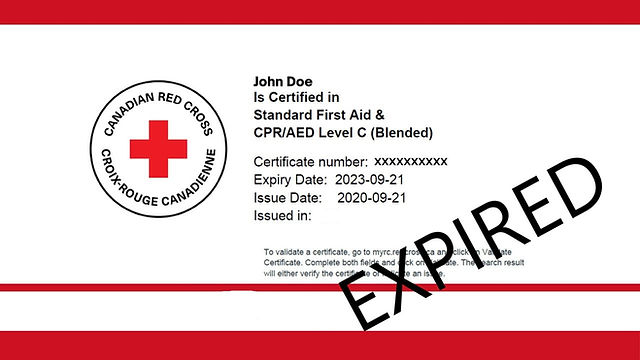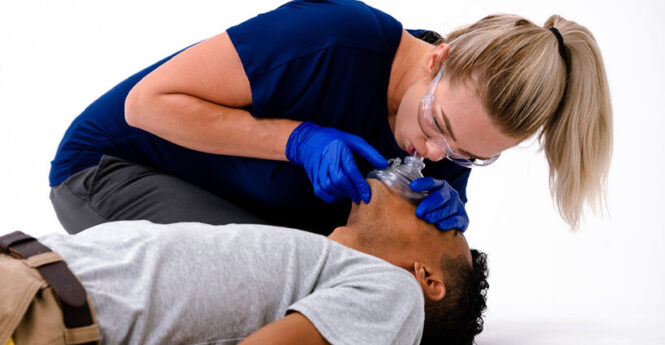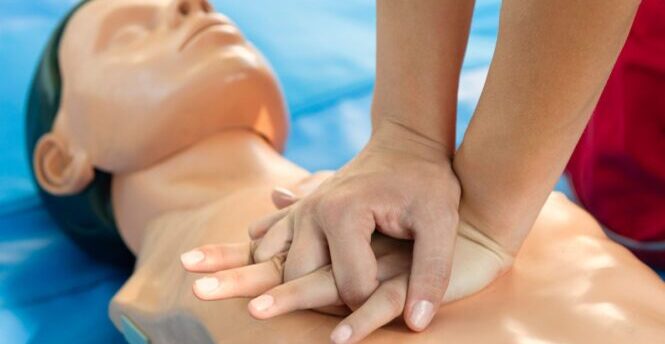CPR and first aid certifications are more than mere qualifications on paper. These credentials have the profound potential to save lives during critical emergencies. Being able to competently and swiftly provide medical assistance during these situations is often the dividing line between life’s continuance and its tragic cessation.
Yet, many individuals, even those certified, often neglect or are unaware of a pivotal aspect: the expiration of these certifications. But why is there so much emphasis on this seemingly trivial detail? Let’s embark on a detailed exploration to decipher the reality behind certification expiry.
Understanding Certification Expiry

At its core, certification expiry denotes the culmination of the valid tenure of your CPR and first aid accreditations. It’s akin to a “best before” stamp found on perishables, a timeline after which the content might not guarantee its utmost efficacy. Just as food items are not safe for consumption indefinitely, certifications, too, aren’t perpetual badges of honor.
They possess expiration dates to ensure the provision of the pinnacle of care. These timeframes also ensure that individuals renew and refresh their knowledge in sync with contemporary guidelines.
Validity Periods for CPR and First Aid Certifications
Most CPR and first aid certifications come with a validity of two years post their issuance. Yet, this isn’t a universal standard. Some might have more stringent timelines, necessitating yearly renewal. Given these variances, it’s imperative to cross-check and confirm with the originating certification institution.
Factors Influencing Expiry Periods
Certification expiry isn’t an arbitrary figure plucked from thin air. It’s a well-thought-out decision anchored in multiple vital considerations. One such determinant is:
Industry Standards: Sectors, especially critical ones like healthcare, often stipulate more recurrent recertifications. This is primarily due to the ever-changing nature of medical advancements and knowledge.
Evolving Guidelines: Medical practices and protocols aren’t static. With time and research, previously lauded methods might be replaced by more efficient techniques. Certification tenures are reflective of these shifts.
Skill Retention: As with any skill, the adage “use it or lose it” applies. The longer the gap since the last application, the higher the potential for skill degradation. Periodic renewals ensure that an individual’s skill set remains sharp and reliable.
Guidelines and Regulations
There’s a maze of industry-specific guidelines dictating the need for periodic recertifications. A prime example is the healthcare sector. Professionals here such as MyCPR NOW, given the direct and significant impact of their roles on lives, are mandated to maintain updated credentials. This is not just a best practice but often a binding requirement to ensure only the highest standards of patient care.
Importance of Recertification

At a cursory glance, recertification might be dismissed as mere bureaucratic red tape. Yet, diving deeper unveils its true essence. More than just a procedural requirement, it is a shining testament to an individual’s unyielding dedication to maintaining high standards of competency.
In a world where skills, especially those not often brought into play, diminish in sharpness, recertification becomes paramount. Letting those skills degrade might lead to serious, even fatal, mistakes in crisis situations. Hence, regular assessments and skill updates are not just recommended but imperative.
Skill Retention and Refresher Training
Despite the marvels of the human brain and its remarkable capacity for knowledge retention, it is not exempt from the inexorable effects of time and memory decay. Particularly for specialized skills like CPR and first aid, which aren’t daily activities for most, the nuances can easily be forgotten.
This memory erosion is why refresher courses are not merely beneficial but essential. They act as crucial bridges, reviving and reinforcing skills that have drifted into the recesses of one’s memory, ensuring peak preparedness, no matter how much time has passed since the initial training.
Staying Current with Updated Techniques

Medical science, with its inherent commitment to betterment, is in a state of perpetual evolution. What was considered best practice a few years ago might now be outdated or even counterproductive. The sheer pace of advancements means that procedures and life-saving techniques are consistently being revised for improved efficiency.
The act of recertification, therefore, is twofold: it’s a rejuvenation of foundational knowledge and an introduction to modern methodologies. It equips practitioners with the most current and efficient life-saving tools, ensuring that care provided aligns with the latest evidence-based practices.
Legal and Liability Considerations
Beyond the intrinsic and moral reasons to maintain up-to-date certifications, there exists a complex tapestry of legal considerations. Venturing to provide CPR or first aid interventions without a valid certification – no matter how noble the intent – is fraught with potential legal pitfalls.
Using techniques that are considered outdated, or inadvertently causing harm, can easily lead to lawsuits. Even in situations where Good Samaritan laws provide some protection, outdated methods might still raise liability concerns, emphasizing the necessity of always being certified.
Employer Requirements
In the professional world, having current CPR and first aid certifications is more than just a feather in one’s cap for certain roles. Professions like EMTs, nurses, coaches, and lifeguards, who routinely operate in high-risk environments where emergencies are not anomalies but expectations, demand these qualifications.
For them, these aren’t optional but foundational. Not having up-to-date certifications can not only bar one from entering these professions but can also jeopardize existing positions, underscoring the gravity of staying certified.
Options for Renewal

Gone are the days when renewal meant tedious, time-consuming processes. The modern landscape offers a plethora of avenues tailored to suit diverse preferences. Organizations globally offer:
Online Courses: Dynamic e-learning platforms, allowing learners the convenience of accessing material anytime, anywhere, catering to individual learning rhythms.
In-person Classes: These sessions, while traditional, emphasize experiential learning, giving participants hands-on practice, cementing their skills.
Practical Assessments: Comprehensive, real-world scenario-based tests, offering participants the chance to demonstrate their prowess in situations mirroring actual emergencies.
Conclusion
CPR and first aid certifications, while inherently invaluable, are not everlasting tokens. Their intrinsic worth is tightly intertwined with their current relevance. With medical paradigms in constant flux and the natural tendencies of memory degradation, the importance of recertification becomes paramount.
It’s not just about holding a certificate; it’s about preserving its intrinsic potency. Always prioritize staying updated, ensuring you’re primed to make a decisive difference when destiny beckons.
Learning to perform CPR can be a useful lifelong skill and could be used one day at your job. Read our article regarding the benefits of CPR training in the workplace and see how you can save the life of your colleague if it ever comes to that.
 Imagup General Magazine 2024
Imagup General Magazine 2024


